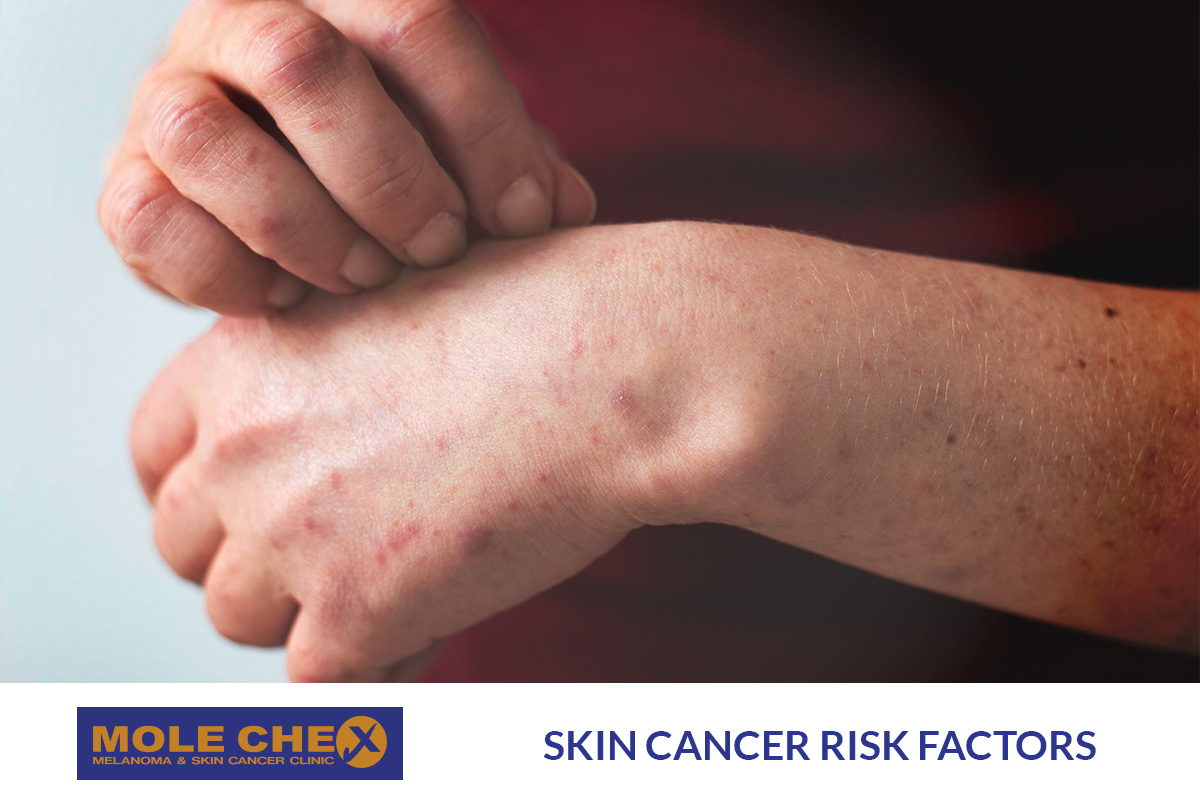Skin Cancer Risk Factors: Know Your Vulnerabilities

Skin cancer, one of the most common cancers globally, particularly in Australia, is primarily caused by DNA damage resulting from exposure to ultraviolet (UV) radiation. Understanding the risk factors is essential for prevention and early detection. Cancer Risk Factors can vary from simple to complex factors.
 UV Radiation Exposure
UV Radiation Exposure
The most significant cancer risk factor for skin cancer is prolonged exposure to UV radiation. This can come from direct sunlight or artificial sources, such as tanning beds. UV radiation damages the skin cells’ DNA, leading to mutations that can result in cancer.
 Skin Type and Complexion
Skin Type and Complexion
Individuals with fair skin that burns or freckles easily are at a higher risk of developing skin cancer. This is due to the lower levels of melanin, which provides some protection against UV radiation. However, it’s crucial to note that skin cancer can affect people of all skin tones.
 Family and Personal History
Family and Personal History
A history of skin cancer in your family can increase your risk. Also, if you’ve had skin cancer before, you’re more likely to develop it again.
 Geographic Location
Geographic Location
Living in areas with intense sunlight throughout the year, like Australia, increases the risk of skin cancer due to higher exposure to UV radiation.
 Age Factor
Age Factor
Although skin cancer can occur at any age, the risk increases as you get older. This is due to the cumulative nature of UV damage over time.
 Exposure to Certain Substances
Exposure to Certain Substances
Exposure to certain hazardous substances, such as arsenic, can increase the risk of skin cancer.
Prevention and Early Detection
Understanding these risk factors is key to prevention. Regular self-examinations and professional skin checks are vital for early detection, which greatly increases the chances of successful treatment. It’s also essential to adopt protective measures, such as using sunscreen, wearing protective clothing, and avoiding peak sun hours.
Conclusion about Skin Cancer Risk Factors
In conclusion, while skin cancer is a significant health concern, especially in sunny regions like Australia, being aware of your vulnerabilities and taking proactive steps can greatly reduce your risk. Stay informed, stay protected, and always consult a healthcare professional if you notice any changes in your skin. Knowing cancer risk factors in general is a good way to keep your health in check.
Being aware of these risk factors is a significant step towards prevention. Regular skin checks, both self-examinations and professional check-ups, are vital for early detection. Remember, early detection of skin cancer can make a significant difference in treatment outcomes.
If you haven’t done skin check recently, schedule one with one of our doctors to minimize Cancer Risk Factors and ensure peace of mind.
Are you interested in reading more? Read other articles :
